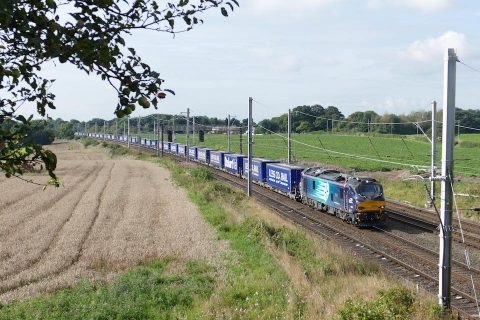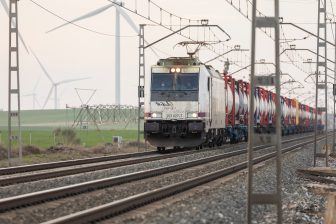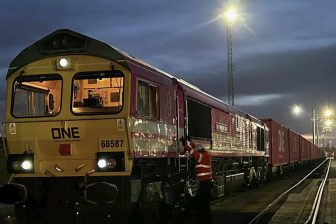
UK Supermarket sweep: DRS helps track down essential supplies
Golborne Juction - DRS 88005 with Daventry - Mossend Euroterminal - intermodal (David Clough)
Well known for their glow-in-the-dark nuclear flask trains, Direct Rail Services are also the shining light behind some of Britain’s most vital supply services. In the farm to fork chain, DRS provides the long-haul connection, but a much-anticipated public show of their own produce is a casualty of the crisis.
Do you want to read the full article?
Thank you for visiting RailFreight.com. Become a member of RailFreight Premium and get full access to all our premium content.
Are you already a member?
Having problems logging in? Call +31(0)10 280 1000 or send an email to customerdesk@promedia.nl.




